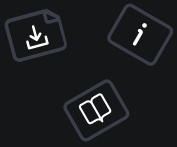Configuration
Overview
Flight provides a simple way to configure various aspects of the framework to suit your application's needs. Some are set by default, but you can override them as needed. You can also set your own variables to be used throughout your application.
Understanding
You can customize certain behaviors of Flight by setting configuration values
through the set method.
Flight::set('flight.log_errors', true);In the app/config/config.php file, you can see all the default configuration variables available to you.
Basic Usage
Flight Configuration Options
The following is a list of all the available configuration settings:
- flight.base_url
?string- Override the base url of the request if Flight is running in a subdirectory. (default: null) - flight.case_sensitive
bool- Case sensitive matching for URLs. (default: false) - flight.handle_errors
bool- Allow Flight to handle all errors internally. (default: true) - flight.log_errors
bool- Log errors to the web server's error log file. (default: false)- If you have Tracy installed, Tracy will log errors based on Tracy configurations, not this configuration.
- flight.views.path
string- Directory containing view template files. (default: ./views) - flight.views.extension
string- View template file extension. (default: .php) - flight.content_length
bool- Set theContent-Lengthheader. (default: true)- If you are using Tracy, this needs to be set to false so Tracy can render properly.
- flight.v2.output_buffering
bool- Use legacy output buffering. See migrating to v3. (default: false)
Loader Configuration
There is additionally another configuration setting for the loader. This will allow you
to autoload classes with _ in the class name.
// Enable class loading with underscores
// Defaulted to true
Loader::$v2ClassLoading = false;Variables
Flight allows you to save variables so that they can be used anywhere in your application.
// Save your variable
Flight::set('id', 123);
// Elsewhere in your application
$id = Flight::get('id');To see if a variable has been set you can do:
if (Flight::has('id')) {
// Do something
}You can clear a variable by doing:
// Clears the id variable
Flight::clear('id');
// Clears all variables
Flight::clear();Note: Just because you can set a variable doesn't mean you should. Use this feature sparingly. The reason why is that anything stored in here becomes a global variable. Global variables are bad because they can be changed from anywhere in your application, making it hard to track down bugs. Additionally this can complicate things like unit testing.
Errors and Exceptions
All errors and exceptions are caught by Flight and passed to the error method.
if flight.handle_errors is set to true.
The default behavior is to send a generic HTTP 500 Internal Server Error
response with some error information.
You can override this behavior for your own needs:
Flight::map('error', function (Throwable $error) {
// Handle error
echo $error->getTraceAsString();
});By default errors are not logged to the web server. You can enable this by changing the config:
Flight::set('flight.log_errors', true);404 Not Found
When a URL can't be found, Flight calls the notFound method. The default
behavior is to send an HTTP 404 Not Found response with a simple message.
You can override this behavior for your own needs:
Flight::map('notFound', function () {
// Handle not found
});See Also
- Extending Flight - How to extend and customize Flight's core functionality.
- Unit Testing - How to write unit tests for your Flight application.
- Tracy - A plugin for advanced error handling and debugging.
- Tracy Extensions - Extensions for integrating Tracy with Flight.
- APM - A plugin for application performance monitoring and error tracking.
Troubleshooting
- If you are having problems finding out all the values of your configuration, you can do
var_dump(Flight::get());
Changelog
- v3.5.0 - Added configuration for
flight.v2.output_bufferingto support legacy output buffering behavior. - v2.0 - Core configurations added.



